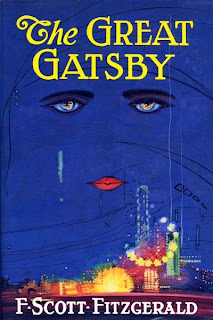 |
Vator.tv contributed reporting on
WaPo's 2011 "personal" news aggregation
service called "Trove" |
On Friday, April 20th, Washington Post (WaPo) ombudsman Patrick B. Pexton contributed an article outlining his perspective on the resignation of Elizabeth Flock, WaPo's newspaper's blog.Post blogger. This excellent piece touches on the factors that led to Flock's
no mas, and provokes some hard, uncomfortable thinking about what the public accepts as "news" in today's "New Media" environment.
Let's get something on the record quickly, for those who might perform a quick data search for the unfortunate Ms. Flock.
She should not be confused with the Elizabeth Flock who formerly worked for CBS News and currently hangs her hat as a novelist. WaPo's bloggista, who is in her mid-20s, brought a relatively thin resume to her position. That's not a crime. In fact, for a young journalist, landing a
WaPo position is a coup. However, big media players such as the
Washington Post have deliberately brought in a decidedly young, inexperienced wave of journalists to their publications. The notion is to move into "New Media," assuming that twenty-somethings have the wherewithal old farts lack to handle the Web and social media. The newbies also happen to cost less to sign, they're easier to churn, and they're "more efficient" (i.e., they'll work like dogs). As for quality....well, let's take a look at what Pexton noted in his article.
The expectations for
blogPost were daunting ones. According to Pexton, Flock said the site was expected to routinely generate 1 million to 2 million hits per month. In my opinion, that "production" implied something of a popularity contest for stories. This concept fits tabloid journalism and the commercial imperatives of search engines quite well. (Most users do not have the slightest idea how information is chosen and presented on any search engine. That passivity is a profound problem, one that dim bulbs continue to propagate by using "google" as a transitive verb.)
WaPo's ambitions have, in recent generations, demanded higher standards worthy of prestigious journalism awards. Obviously, something has changed in DC.
Pexton's story only gets more disturbing. "On many days," he wrote, "Flock was the only reporter filing for blogPost. Last month, she averaged 5.9 blog posts per day. These are not 100-word briefs but often 500-word summaries of complicated news events that ranged from the killing of Trayvon Martin to the use of pink slime in ground beef to the impact of general strikes in Spain."
Flock had made two mistakes in the past four months. One involved attributing a Ku Klux Klan slogan to a Mitt Romney speech. Her report was flat out wrong; she took her publicly cited medicine and continued soldiering for blogPost. Pexton observed that there was a lack of editorial oversight on that piece. In essence, Flock was left out on an Internet island, under tremendous production pressure and time deadlines. Did anyone say "Good luck, Mr. Phelps"?
Pexton spoke with other young
WaPo bloggers who pointed out the Mission Impossible feeling of their roles. "They said they felt as if they were alone out there in digital land, under high pressure to get Web hits, with no training, little guidance or mentoring, and sparse editing. Guidelines for aggregating stories are almost nonexistent, they said. And they believe that, even if they do a good job, there is no path forward. Will they graduate to a beat, covering a crime scene, a city council or a school board? They didn't know. So some left; others are thinking of quitting."
Meanwhile, as Pexton noted, the Flock episode occurred during a week in which the
Post offered more buyouts to established employees. Coincidentally, this was also the week the
Post was shut out in the Pulitzer Prize awards. Transforming the
Washington Post into a digital sweatshop doesn't seem like the path to a return to journalistic glory.
Curiously, the post that led to Flock's departure was, to my mind, a relatively minor offense. (Yes, it's still a violation of classical journalism standards.) Apparently, she cribbed a couple of paragraphs without attribution from a Discovery News story about life on Mars. The competitor, whose corporate office happens to be in Silver Spring, Maryland, complained.
WaPo ate some more public crow, and Flock fell on her professional sword.
 |
Discovery Communications HQ, Silver Spring MD
(photo via Wikipedia) |
Discovery News is not exactly small potatoes. It is one of the established powers of "New Media," with a stable of cable TV brands at its commercial heart. If you're a fan of
Animal Planet, the
Oprah Winfrey Network, or
TLC, then you're watching Discovery product.
Discovery Communications, Inc. is the parent company of these and other brands. The firm is a significant player in the K-12 video content and delivery market and its lucrative contracts. (Full disclosure: I work in K-12 publishing sales.)
In case you're wondering who owns Discovery Communications, take a look.
Among its important shareholders are the Advance/Newhouse enterprise (think big-time magazines and you get the idea) and John Malone (Liberty Media/cable TV). What is the level of their commitment to "quality" journalism? I suppose you could tune into
Animal Planet to get a sense of it. If you want a notion of their commitment to profit,
Discovery Communication's SEC filings should provide a clue.






































